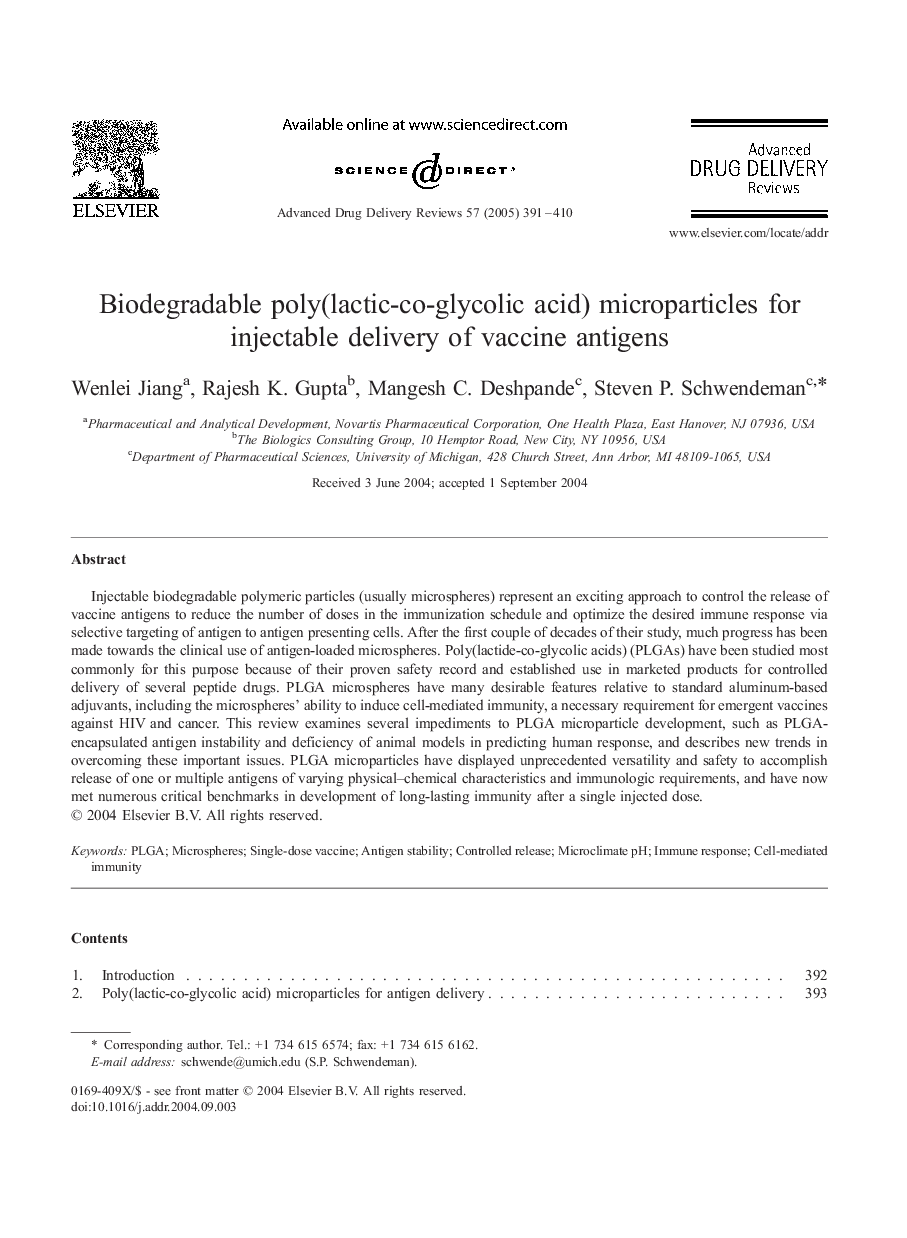| Article ID | Journal | Published Year | Pages | File Type |
|---|---|---|---|---|
| 10883961 | Advanced Drug Delivery Reviews | 2005 | 20 Pages |
Abstract
Injectable biodegradable polymeric particles (usually microspheres) represent an exciting approach to control the release of vaccine antigens to reduce the number of doses in the immunization schedule and optimize the desired immune response via selective targeting of antigen to antigen presenting cells. After the first couple of decades of their study, much progress has been made towards the clinical use of antigen-loaded microspheres. Poly(lactide-co-glycolic acids) (PLGAs) have been studied most commonly for this purpose because of their proven safety record and established use in marketed products for controlled delivery of several peptide drugs. PLGA microspheres have many desirable features relative to standard aluminum-based adjuvants, including the microspheres' ability to induce cell-mediated immunity, a necessary requirement for emergent vaccines against HIV and cancer. This review examines several impediments to PLGA microparticle development, such as PLGA-encapsulated antigen instability and deficiency of animal models in predicting human response, and describes new trends in overcoming these important issues. PLGA microparticles have displayed unprecedented versatility and safety to accomplish release of one or multiple antigens of varying physical-chemical characteristics and immunologic requirements, and have now met numerous critical benchmarks in development of long-lasting immunity after a single injected dose.
Keywords
Related Topics
Life Sciences
Biochemistry, Genetics and Molecular Biology
Biotechnology
Authors
Wenlei Jiang, Rajesh K. Gupta, Mangesh C. Deshpande, Steven P. Schwendeman,
